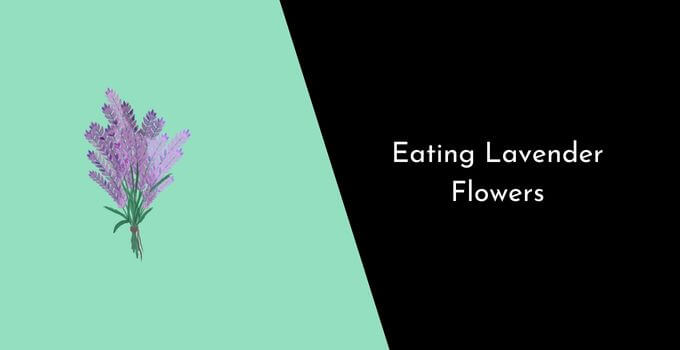Ah, the sweet smell of lavender! For many people, it’s one of their favorite scents. Not only does it evoke pleasant memories and feelings of calmness, but did you know that eating lavender flowers can provide a variety of health benefits? In this article, I’ll discuss why adding some edible lavender to your diet could be beneficial for both your physical and mental wellbeing.
People have been using edible flowers such as lavender as a herbal remedy since ancient times – from treating respiratory problems to reducing stress levels. Today, we’re beginning to understand more about how its unique properties can help us live healthier lives. From boosting immunity to improving digestion, there are plenty of reasons why you should consider consuming lavender on a regular basis.
So if you’re looking for a delicious way to improve your overall health and wellbeing, then keep reading! You’ll learn all about the wonderful benefits of eating lavender flowers and get some tips on how to add them into your daily routine. So let’s dive right in!
Can You Eat Lavender Raw?
Well, who doesn’t love a flowery snack? Lavender is one of those wonderful flowers that can be used as a culinary delight. But when we talk about eating lavender raw, it’s not quite so simple.
You see, while some people may think that lavender is just an edible flower and thus assume you can munch away on it in its natural state, the fact is there are certain types of lavender which are more suitable for consumption than others.
It’s important to note here that only culinary grade lavender should be eaten – this means it must have been grown specifically for human consumption rather than simply being taken from the garden or field.
Even with culinary-grade lavender, though, it still needs to be cooked before consuming due to its potency and potential side effects if eaten raw. So even though you might find yourself tempted to nibble on these fragrant blooms right out of the garden, it would be best to leave them alone unless they were meant for cooking!
Benefits And Side Effects
Now that you know lavender flowers are edible, let’s explore the benefits and side effects of eating them. Lavender is generally known to provide a wide range of health benefits when consumed. It contains many vitamins and minerals including Vitamin A, C and E as well as magnesium, potassium and iron. Here are some potential benefits associated with consuming lavender:
- Promotes relaxation and aids in sleep due to its calming properties
- Supports digestion by helping reduce bloating and gas
- Has anti-inflammatory properties which can help soothe sore muscles
- Contains antioxidants which can help fight off free radicals
- Can act as an immune system booster
However, it’s important to note that while there are several potential health benefits associated with consuming lavender flowers, there could also be some adverse side effects such as headaches or nausea if taken in large amounts.
Additionally, people who suffer from allergies may want to avoid ingesting lavender altogether. Furthermore, pregnant women should not consume any products containing lavender oil or extract because it has been linked to miscarriage.
All these points need to be considered before making the decision whether or not to include lavender into your diet.
Overall, when used in moderation – either through culinary applications or aromatherapy -lavenders can offer a number of potential health advantages; however, certain precautions must be taken for those looking to incorporate these fragrant flowers into their diets.
Conclusion
In conclusion, eating lavender flowers can be a great way to get some of the benefits of this herb without having to go through the process of growing and preparing it for tea. While there are no known side effects when consuming raw lavender, you should always consult with your doctor if you have any questions or concerns before adding something new into your diet.
Eating lavender is much like tiptoeing through a field of wildflowers – you never know what delightful surprises await! From calming anxiety to providing relief from indigestion and headaches, this fragrant flower has many health benefits that we can tap into by simply enjoying its beauty directly from nature. We hope this article has encouraged you to explore the world of edible flowers and reap their countless rewards.
Affiliate Disclosure: Some of the links in this post are affiliate links, which means I may earn a small commission if you make a purchase through those links. This comes at no extra cost to you. Thank you for your support!

